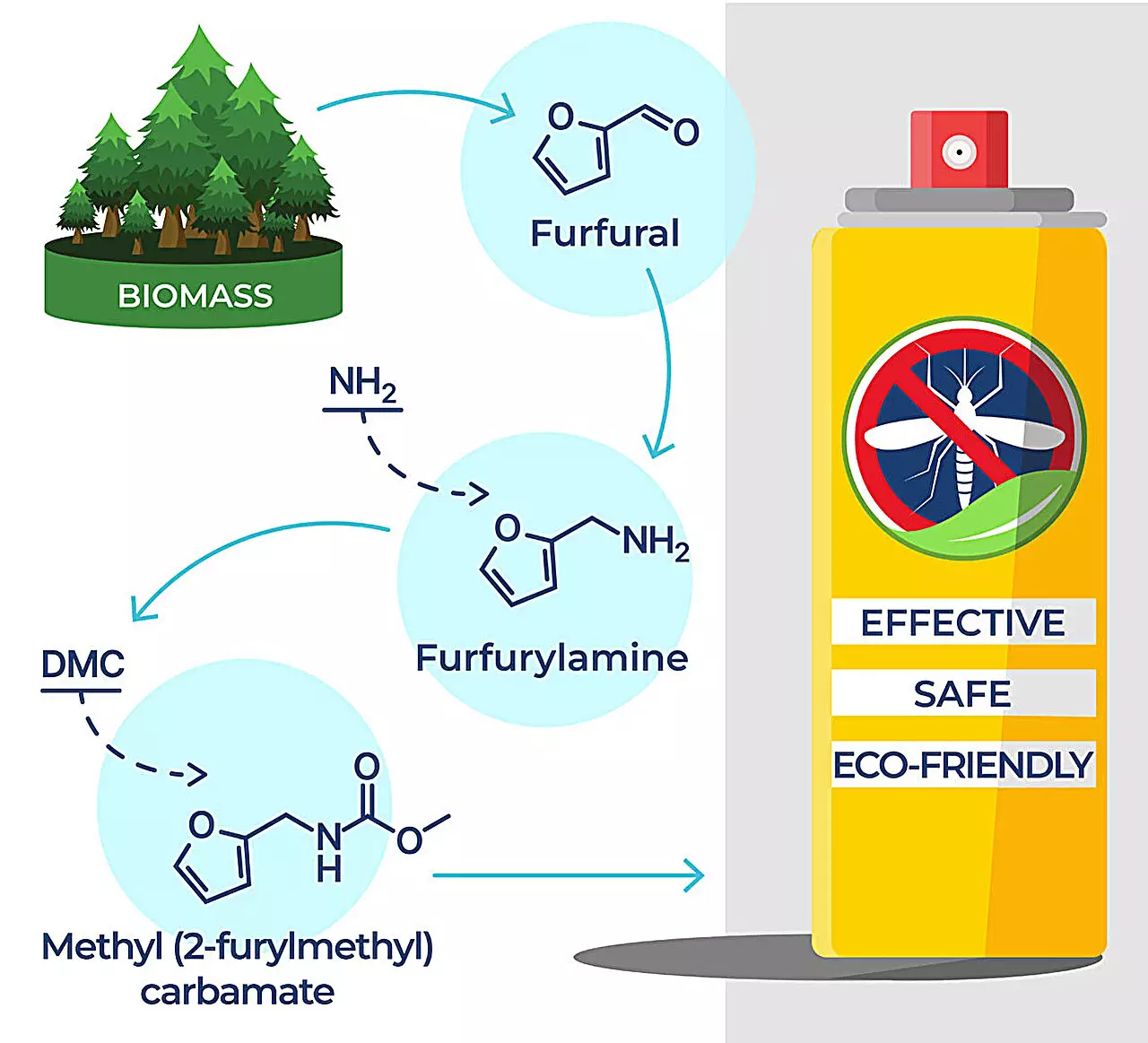In the face of significant global population growth and the increasing demand for food, the agricultural sector frequently finds itself in a double bind when it comes to pest management. The reliance on traditional pesticides often leads to environmental degradation and unintended harm to non-target species, including beneficial insects. A new wave of research from the University of Delaware presents a promising shift towards eco-friendly pesticide alternatives. Led by Professors Dion Vlachos and Michael Crossley, this initiative seeks to create target-specific insecticidal ingredients, leveraging renewable biomass resources in a sustainable manner.
The essence of agriculture today lies in balancing pest control with ecological integrity. The research team at the University of Delaware has pioneered a method that channels the potential of plant-based electrical atoms from biomass into active insecticidal compounds. By employing waste materials such as wood pulp, straw, and corncobs, the researchers formulate a circular approach that not only minimizes waste but also reduces reliance on conventional fossil fuel-derived chemicals.
Sunitha Sadula, a leading figure in the study, describes these innovations as “bridging molecules” that serve to connect the harsh realities of existing agricultural chemical practices with a more sustainable future. This novel approach aims to decrease the toxicity levels of pest control methods currently in use, ultimately benefiting both food safety and the environment.
In their groundbreaking research published in ChemSusChem, the team focused on creating active ingredients that are structurally similar to existing effective pesticides while being derived from renewable resources. Their experimentation with vanillin, a compound synthesized from lignin, and furfural, obtained from sugar-rich biomass, reveals an exciting path forward. The incorporation of these bio-based molecules into pest control strategies could redefine agricultural practices, reducing the ecological footprint associated with traditional pest management.
The collaborative efforts of chemists and entomologists led to successful tests of these innovative compounds against the lesser mealworm beetle, a common agricultural pest. The results indicated that the new insecticides yielded mortality rates comparable to those of widely used conventional insecticides, showcasing both effectiveness and reduced ecological impact—a dual win for agricultural sustainability.
Despite these promising findings, extensive testing is essential to ascertain the long-term ecological effects of these newly developed pesticides. Professor Crossley has emphasized the need to ensure these compounds do not adversely impact non-target beneficial insect populations, such as honeybees, before mainstream adoption. This ongoing research aims to achieve effective pest control while safeguarding the environment.
Furthermore, the use of furfural-based compounds showed additional unexpected benefits; they are less toxic to aquatic life compared to existing chemical formulations. With the propensity to remain in water rather than bioaccumulate in organisms, the ease with which these compounds can be washed off fruits and vegetables could bolster food safety initiatives.
An integral aspect of the UD research team’s findings is the economic feasibility of their innovative pesticides. A technoeconomic analysis highlighted that the developed furfural-based compounds can be produced at a cost significantly lower—two to four times cheaper—than traditional chemical alternatives. This efficiency, coupled with the team’s strategic focus on using commercially available molecules, facilitates future scaling of production without complications related to supply chain disruptions.
By emphasizing the importance of utilizing waste materials for chemical synthesis, the researchers employ a model of sustainability that addresses both ecological and economic concerns. “Recycling” concepts in chemical production could redefine how industries approach sustainability in agriculture.
The research spearheaded at the University of Delaware not only offers fresh perspectives on pest management but also encourages the agricultural community to envision ecologically responsible solutions. As Professor Crossley aptly puts it, this process showcases “the transformation of trash into a valuable insecticide,” which could catalyze a wider movement towards greener chemical manufacturing in agriculture.
The implications of this work extend beyond insect control; they inspire broader conversations around sustainability, ecological integrity, and the responsible stewardship of natural resources. If successful, these innovations will not only protect crops but will also contribute to the health of ecosystems, thereby cultivating a brighter and more sustainable future in agriculture.
As the agricultural industry grapples with the complexities of pest management in a growing world, research like that of the University of Delaware is invaluable. It lays the groundwork for sustainable practices that prioritize both productivity and environmental wellness, demonstrating that with commitment and creativity, it is indeed possible to turn environmental challenges into opportunities for resilience and innovation.


Leave a Reply